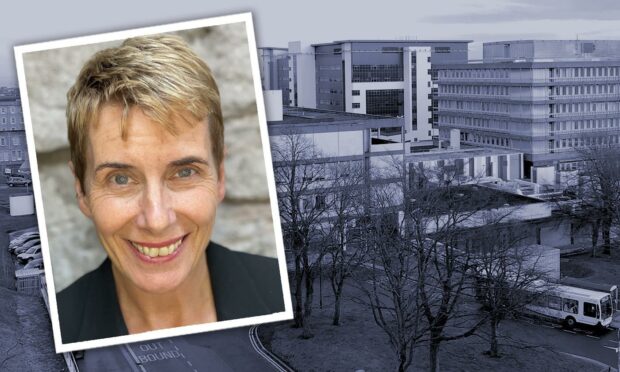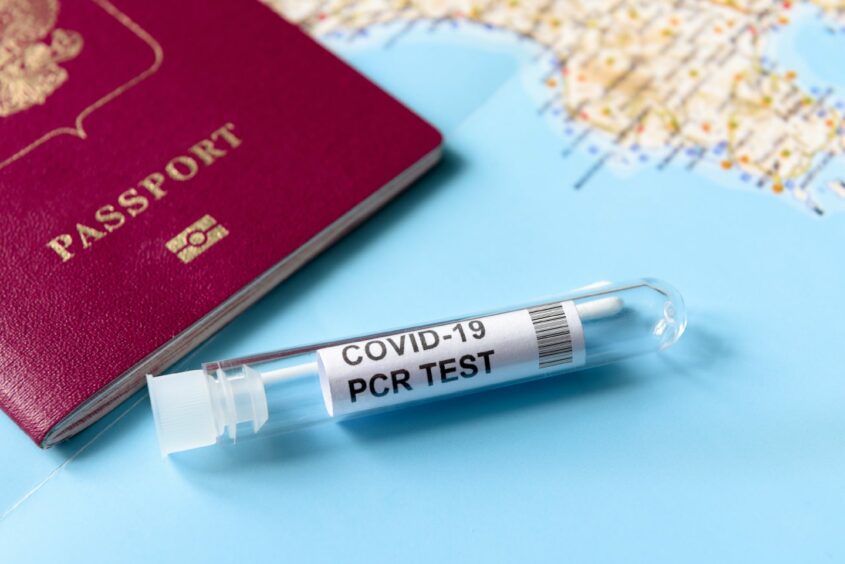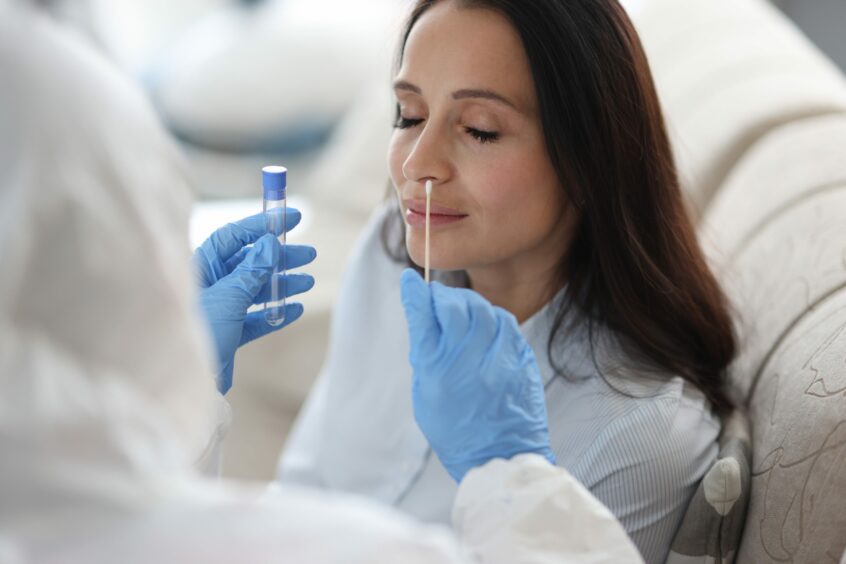NHS Grampian’s head of intelligence has warned the new variant could cause further disruptions to our lives if it is more contagious.
Jillian Evans said we won’t know if Omicron could lead to more serious illness in patients for several weeks.
But experts fear the new variant is more infectious and could spread faster in communities than Delta.
“There’s three things most people are worried about,” she said. “Is it more infectious? Will it evade the protection that we get from the vaccine, and how serious will the outcomes be in terms of people becoming seriously unwell, enough to be admitted to hospital and possibly even dying.
“Certainly, the indications are that if you look at what happened in South Africa, Gauteng in particular, they saw such a sharp spike in cases where it had been really quiet and low for a long time.
“When they spotted that and studied that particular region they found 90% of the cases were what we now call the Omicron variant.
“That’s worrying, but it was a small sample so it might be a bit misleading.
“Nonetheless, people are worried because of the spike mutations, there’s double the amount of mutations that we saw in Delta so there’s every chance this may be a more contagious variant.”
Will it overtake Delta?
Jillian said it was too early to say how fast the new variant could spread or whether it would overtake Delta which is currently the dominant variant.
“We simply don’t know yet,” she said. “Other variants of interest have come and gone but, judging by the rapid action that’s been taken by governments across the world, this would suggest to me that people really are worried about this one.”
How is the new variant detected?
PCR tests can detect infection with the new variant. Swabs from these tests are then sent to a lab for a full genetic analysis.
It can take several weeks to get the results of genomic sequencing tests but it can help build up a picture of how prevalent the variant is in communities.
Jillian says it’s not yet possible to determine whether Omicron can make patients more seriously unwell.
“We don’t know the answer to that yet,” she said. “It’s normally a couple of weeks after testing before people start becoming seriously unwell.
“It will be important to watch what happens to the other cases around the world.”
‘It’s a worry’
Jillian said it was a concerning situation.
And she reiterated First Minister Nicola Sturgeon’s calls for the public to help protect themselves, and others, by continuing to take tests, wear face masks and work from home where possible.
“It’s a worry for our family, friends and our communities,” she said. “It’s a worry because our healthcare systems are under so much pressure and it’s a worry because what might it lead to?
“Could it lead to more serious disease for some vulnerable people, hospitalisations and death?
“That’s the most worrying thing of all, let alone the disruption of course that increased prevalence of Covid can have in our schools, in our communities, in our normal way of life.
“Every harm we experience in either education, hospitality or at work is because we have high infection rates.
“If we’re talking about the variant being more contagious, more infectious, then of course it will have an effect on every part of our lives again.”



